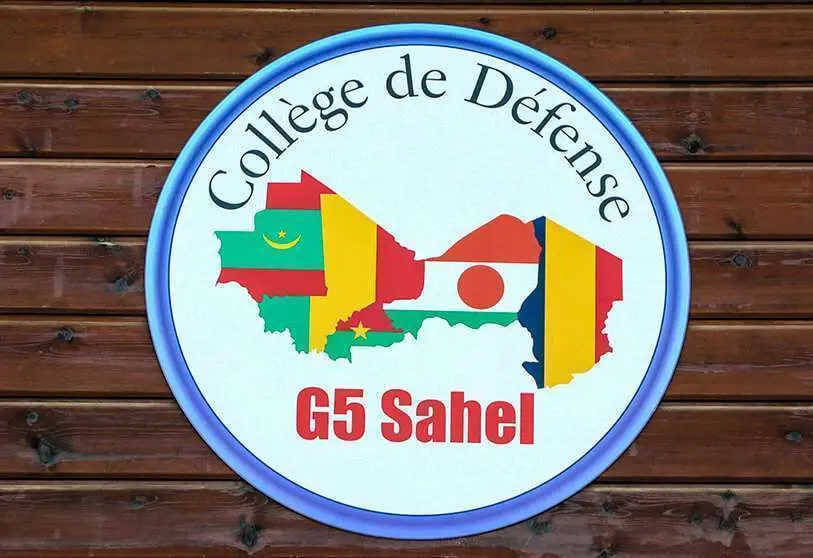A caliphate in the Sahel

Two years ago, when I was in Dakar, I attended a dance and poetry show at the art centre, Espace Médina. To reach this beautiful place, which attracts the most diverse fauna, you have to pass by the House of the Koran and its prayer area.
The artists surrounded by their audience in light clothing - in this very hot season - were welcomed by the imam of the House of the Koran with a big smile on his lips and greeted all the guests one by one. While the artists shouted their poetry and sang, the men downstairs prayed.
This scene alone sums up the Islam that has reigned for centuries in Senegal and sub-Saharan Africa. An Islam of peace, of sharing, defending the values of good neighbourliness.
This Islam seems to be threatened today, not to say endangered.
Because if Senegal appears to have been spared terrorist attacks and religious rigour so far, this is not the case of its West African neighbours. The sad events that have plunged the continent into mourning this year lead us to believe this.
At a time when Daesh is weakening in the Middle East, Jihadism is growing stronger in Africa and on the move.
The Islamic state of Syria is no longer recruiting as before and, although its ideology is resisting, its means are becoming increasingly scarce. We need only pay attention to the latest attacks perpetrated in Europe and especially in France. The modus operandi has changed; the attacks committed and even if claimed by Daesh, are not financed or programmed by the terrorist organisation.
But while Daesh's strike force has diminished in Iraq and Syria, Boko Haram, al-Qaeda Sahel and other groups affiliated with the Jihad are now striking head-on at the black continent.
Nigeria is increasingly in the spotlight. The unbearable images of the 110 farmers killed in the rice fields of the north are surprising and challenging. By attacking ordinary citizens, the attackers want to create fear and panic.
It is not only Nigeria that is in mourning. In Cameroon, 275 people were killed in the north of the country by jihadists in 2019. It must be said that the lack of a comprehensive policy is deplorable in the region!
Before recovering from the Nigerian attacks, Mali was hit on several sides. The Sahelian branch of al-Qaeda attacked three French and United Nations bases in northern Mali on Monday 30 November, where mobile Jihadist groups continue to operate.
The recent terrorist attacks in Mali are also a response to France. As a reminder, the French army, in the framework of Operation Barkhane, killed the head of al-Qaeda's Sahelian branch, Bah Ag Moussa, on 10 November.
Two months earlier, the release of the French hostage Sophie Pétronin was negotiated by paying a ransom to the kidnappers and, during the negotiation, some 200 Jihadists were released into the jungle.
This did not cease to incur the wrath of Algiers, which denounced "unacceptable practices, contrary to the United Nations resolutions, which incriminate the payment of ransom to terrorist groups and hinder efforts to combat terrorism".
A few weeks later, Mustapha Derrar, one of Algiers' most wanted Jihadists, was arrested in western Algeria at Tlemcen. "The criminal, who had joined the terrorist groups in 2012, was released at the beginning of October in Mali following negotiations conducted by foreign parties that led to an agreement", said the Algerian defence minister. The president of Burkina Faso also expressed his concern straightforwardly: "It is costing Burkina Faso a lot of money," he said. In an interview with France 24, Roch Marc Christian Kaboré had said he was "not aware of the negotiations, including the release of the alleged mastermind of the 2016 jihadist attack in Ouagadougou [...] it is a negotiation between the Malian state and the hostage-taking camp". Burkina, under tension, is struggling to find peace in its highlands. Last September, 29 people were killed and over the last five years, the country has lived with the violence that has left more than 570 dead. Is Africa in the process of becoming the backyard of an Islamist caliphate?
The United States, which provides considerable aid to the G5 in the Sahel with a budget of 45 million euros, is opting for the withdrawal of its troops. "If the Americans were to withdraw, it would be bad news for us", said the French president, who rightly fears not only a resurgence of population movements and migratory flows but also a new era of terrorism.

